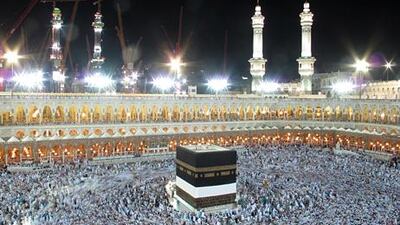Al Hilal Bank has launched the world's first credit card that incorporates a digital compass to help customers locate Qibla, the direction Muslims must face while performing Salah.
The Abu Dhabi-based Islamic lender says the Qibla credit card, which was developed in conjunction with MasterCard and Infotec Systems, offers a zero profit rate for up to one year for Haj and Umrah-related travel, while customers will also receive complimentary travel vouchers worth Dh500 for their pilgrimages.
"It was like a 'mission impossible' task when the bank approached us with the idea of having a compass built into a payment card that would indicate the Qibla direction from anywhere in the world," says Eyad Al-Kourdi, the vice president and UAE country manager for MasterCard.
A six-month zero profit rate applies for travel, electronic, jewellery and other purchases and cardholders can make contributions to UAE Red Crescent by rounding up the price of their local transactions to the nearest multiples of Dh5, Dh10 or Dh100.
"Our new offering enables cardholders to benefit from a rich array of exclusive benefits and special privileges, says Mohamed Zaqout, the head of Al Hilal's personal banking group.
Other benefits include being able to transfer balances from conventional credit cards at a zero profit rate for up to 12 months. The bank says this is to encourage customers to shift to Islamic cards and to help them pay off their high-interest-bearing card balances.
Go to www.alhilalbank.ae or call 800 666666 for details.
Emirates Islamic Bank (EIB) and Dubai Bank, subsidiaries of Emirates NBD, have kicked off a rupee remittance campaign that offers customers reduced exchange rates and zero processing fees.
The lenders launched the campaign, which ends on October 31, after a surge in remittances from the UAE to India as workers rushed to take advantage of the weak rupee.
"The recent change in the UAE dirham-Indian rupee exchange rate has witnessed a surge in remittances by our Indian customers and we would like to provide our customers the maximum benefit from such remittances through providing optimum money transfer solutions," says Faisal Aqil, the deputy chief executive of consumer wealth management at EIB and Dubai Bank.
India last year received a record US$64 billion (Dh235bn) in remittances, up from $54bn in 2010, according to the World Bank.


